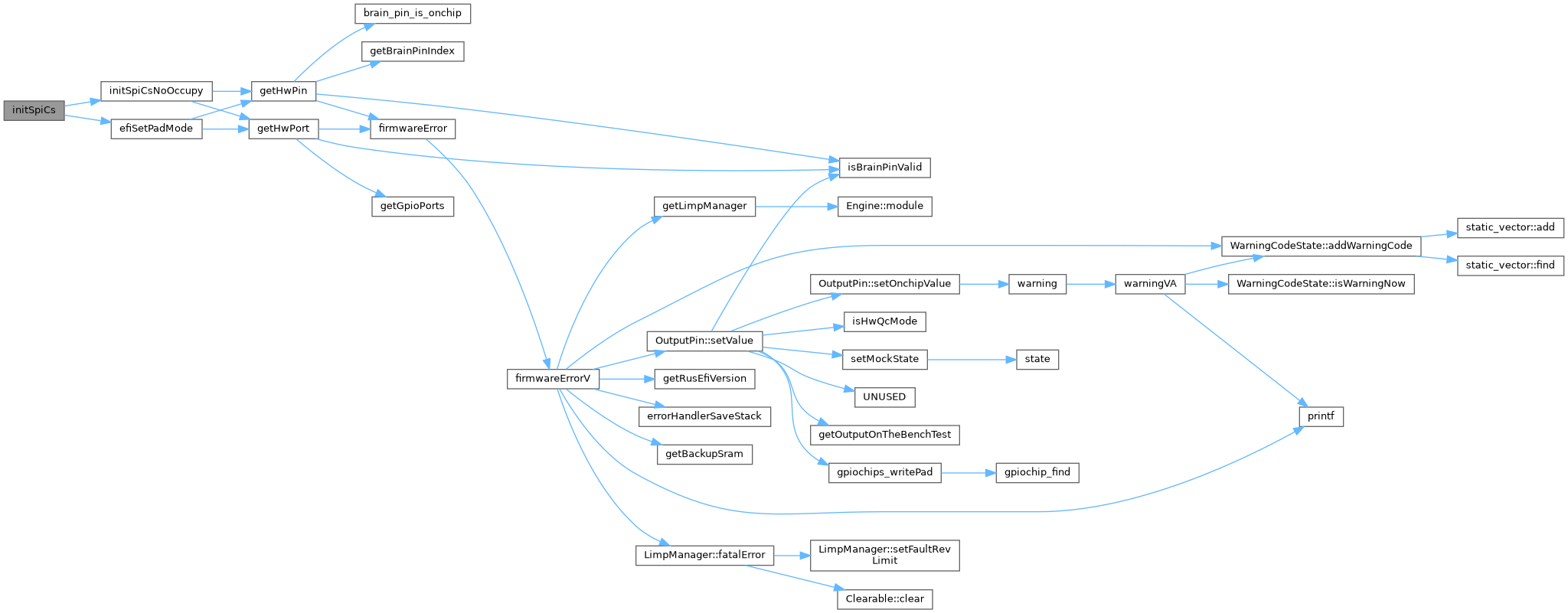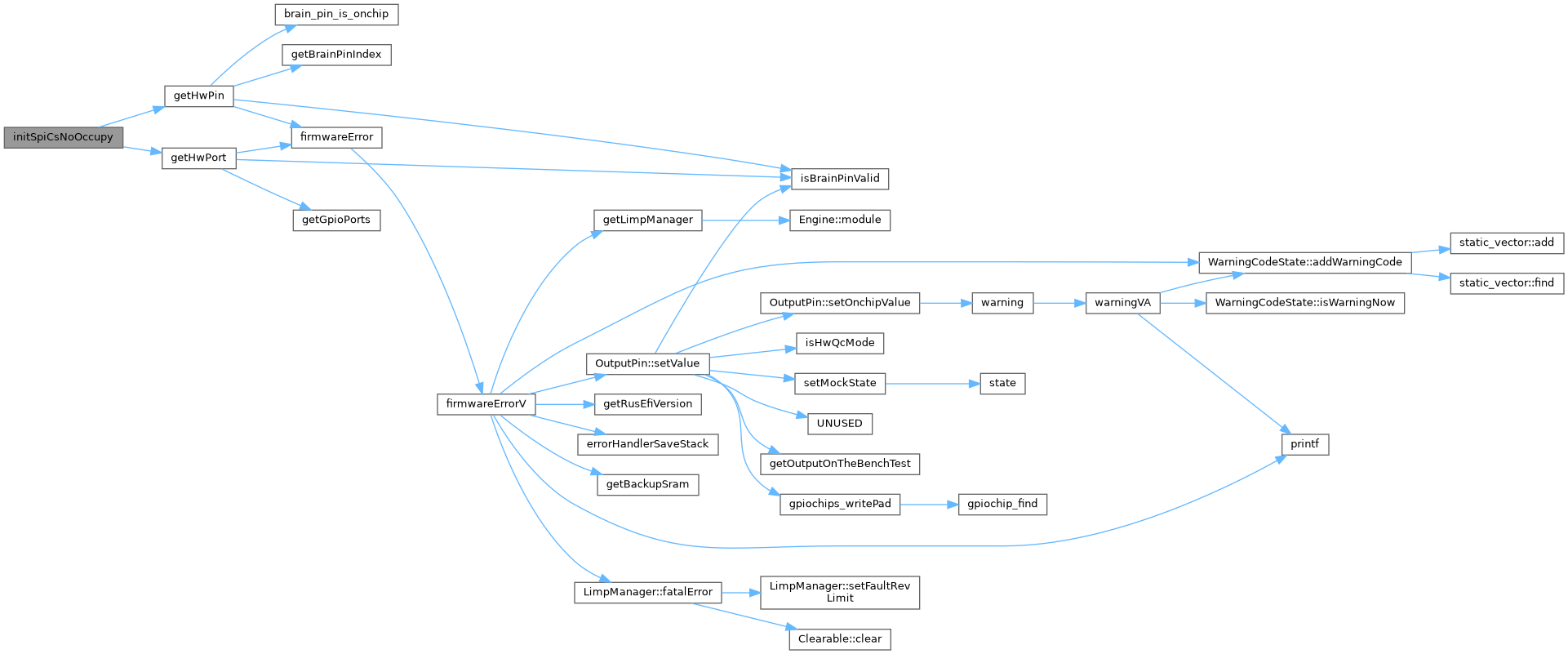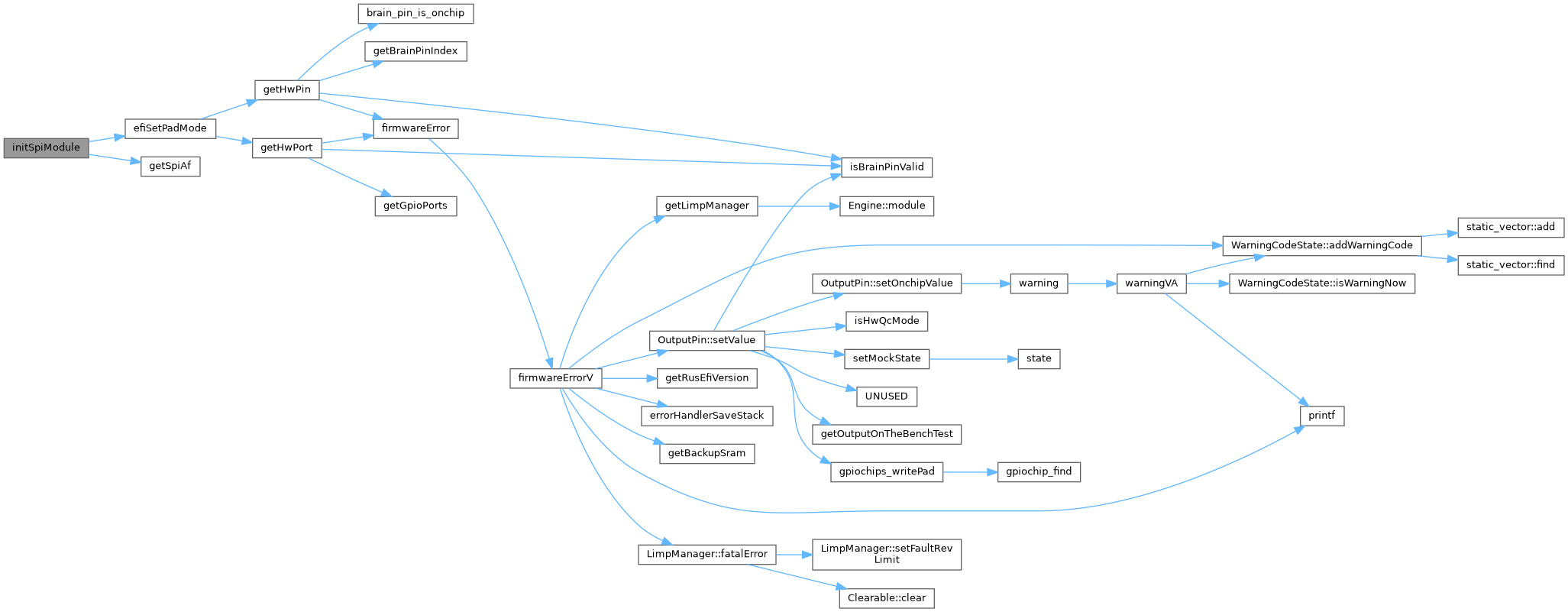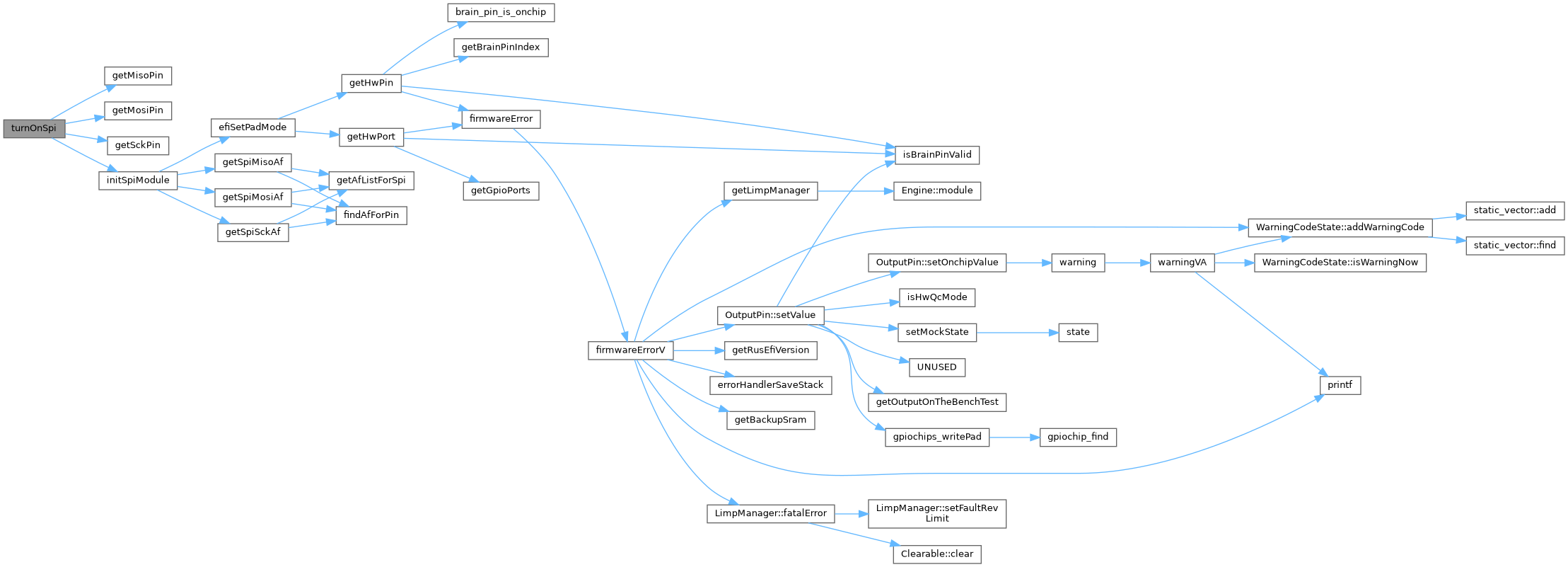Functions | |
| static int | getSpiAf (SPIDriver *driver) |
| void | turnOnSpi (spi_device_e device) |
| void | initSpiModule (SPIDriver *driver, brain_pin_e sck, brain_pin_e miso, brain_pin_e mosi, int sckMode, int mosiMode, int misoMode) |
| void | initSpiCsNoOccupy (SPIConfig *spiConfig, brain_pin_e csPin) |
| void | initSpiCs (SPIConfig *spiConfig, brain_pin_e csPin) |
| int | spiGetBaseClock (SPIDriver *spip) |
| int | spiCalcClockDiv (SPIDriver *, SPIConfig *, unsigned int) |
Variables | |
| bool | isSpiInitialized [SPI_TOTAL_COUNT+1] = { true, false, false, false, false, false, false } |
| SPIConfig | mmc_hs_spicfg |
| SPIConfig | mmc_ls_spicfg |
Function Documentation
◆ getSpiAf()
|
static |
Definition at line 15 of file stm32_spi.cpp.
Referenced by initSpiModule().

◆ initSpiCs()
| void initSpiCs | ( | SPIConfig * | spiConfig, |
| brain_pin_e | csPin | ||
| ) |
Definition at line 160 of file stm32_spi.cpp.

◆ initSpiCsNoOccupy()
| void initSpiCsNoOccupy | ( | SPIConfig * | spiConfig, |
| brain_pin_e | csPin | ||
| ) |
Definition at line 153 of file stm32_spi.cpp.
Referenced by initSpiCs().


◆ initSpiModule()
| void initSpiModule | ( | SPIDriver * | driver, |
| brain_pin_e | sck, | ||
| brain_pin_e | miso, | ||
| brain_pin_e | mosi, | ||
| int | sckMode, | ||
| int | mosiMode, | ||
| int | misoMode | ||
| ) |
See https://github.com/rusefi/rusefi/pull/664/
Info on the silicon defect can be found in this document, section 2.5.2: https://www.st.com/content/ccc/resource/technical/document/errata_sheet/0a/98/58/84/86/b6/47/a2/DM00037591.pdf/files/DM00037591.pdf/jcr:content/translations/en.DM00037591.pdf
Definition at line 132 of file stm32_spi.cpp.
Referenced by turnOnSpi().


◆ spiCalcClockDiv()
| int spiCalcClockDiv | ( | SPIDriver * | spip, |
| SPIConfig * | spiConfig, | ||
| unsigned int | clk | ||
| ) |
Definition at line 217 of file stm32_spi.cpp.
◆ spiGetBaseClock()
| int spiGetBaseClock | ( | SPIDriver * | spip | ) |
Definition at line 173 of file stm32_spi.cpp.
◆ turnOnSpi()
| void turnOnSpi | ( | spi_device_e | device | ) |
Definition at line 50 of file stm32_spi.cpp.
Referenced by initSpiModules().


Variable Documentation
◆ isSpiInitialized
| bool isSpiInitialized[SPI_TOTAL_COUNT+1] = { true, false, false, false, false, false, false } |
Definition at line 13 of file stm32_spi.cpp.
Referenced by stopSpi(), and turnOnSpi().
◆ mmc_hs_spicfg
| SPIConfig mmc_hs_spicfg |
Definition at line 267 of file stm32_spi.cpp.
◆ mmc_ls_spicfg
| SPIConfig mmc_ls_spicfg |
Definition at line 284 of file stm32_spi.cpp.